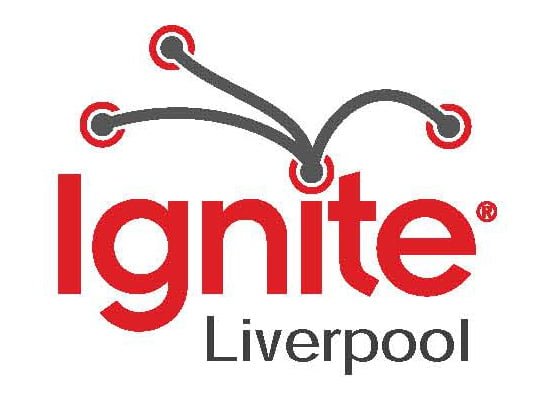Future sessions
We took a trip into the future on Saturday to look at the issues that will affect all of our lives over the next 30 years.
Each themed session consisted of short 5 minute presentations from our speakers who then faced the audience for a Question and Answer opportunity to dig into the detail.
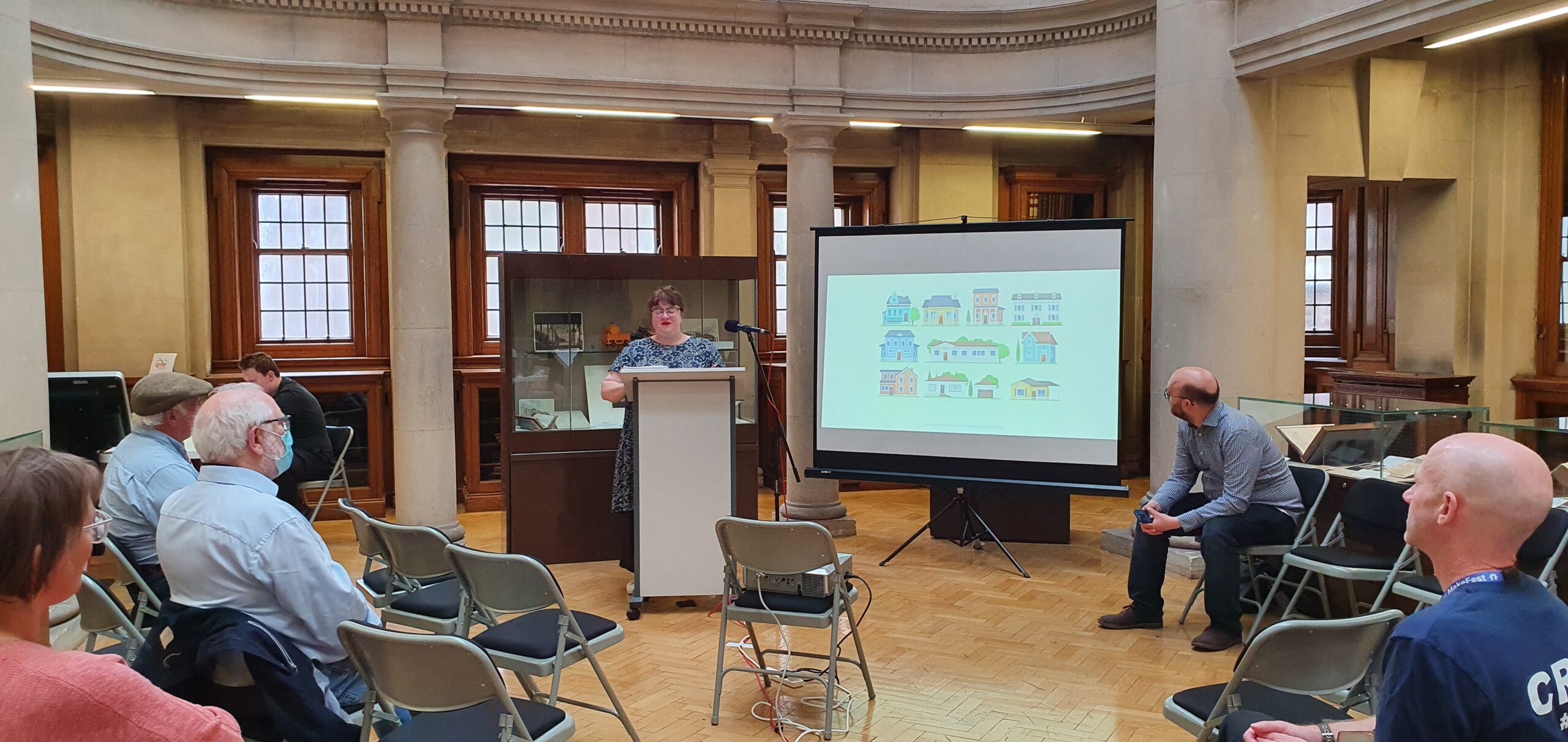
Lucy Antal, presenting on 15 minute neighbourhoods, and why access to fresh food is the start of great things.
Liverpool 2050: how can we build a resilient city – one that is thriving, fair and sustainable?
Venue:
Hornby Room, Central Library, William Brown Street, Liverpool, L3
Date
Saturday 2nd July 12-5pm
Selected Twitter highlights from the day
All set up, just waiting for the speakers and the passage of time. #LivMF22 pic.twitter.com/7aWtSQanOj
— Ignite Liverpool (@Igniteliv) July 2, 2022

Food
Our speakers were asked to address this provocation; We’ve experienced a number of shocks over recent years that show we don’t have food security in the UK – does resilience lie with our food co-ops, growers, allotmenteers, faith groups, foodbanks and zero-waste communities?
A reminder of our first speakers Lucy Antal @GrabYourSpoon and @AlchemicKitchen and @feedbackorg, and Minna Alanko-Falola is @CompostWorksUK. Both Lucy and Minna are part of @livfoodgrowers.
— Ignite Liverpool (@Igniteliv) July 2, 2022

Lucy Antal
15 minute neighbourhoods, and why access to fresh food is the start of great things.
Planning tends to focus on the middle of towns, but not on the edges, which is where people tend to live. Or try to live anyway. #LivMF22
— Ignite Liverpool (@Igniteliv) July 2, 2022
Our residential neighbourhoods often don't have what we need, particularly when it comes to access to shops, and fresh food.
— Ignite Liverpool (@Igniteliv) July 2, 2022
Food connects everything and it deserves a space at the political table. This is where the 15 minute neighbourhood comes into play.
— Ignite Liverpool (@Igniteliv) July 2, 2022
We need more education, but that doesn't mean 'teaching people how to cook', it's about educating people about supply chains, and surplus.
— Ignite Liverpool (@Igniteliv) July 2, 2022
Next up we have Minna Alanko-Falola talking about composting.
— Ignite Liverpool (@Igniteliv) July 2, 2022
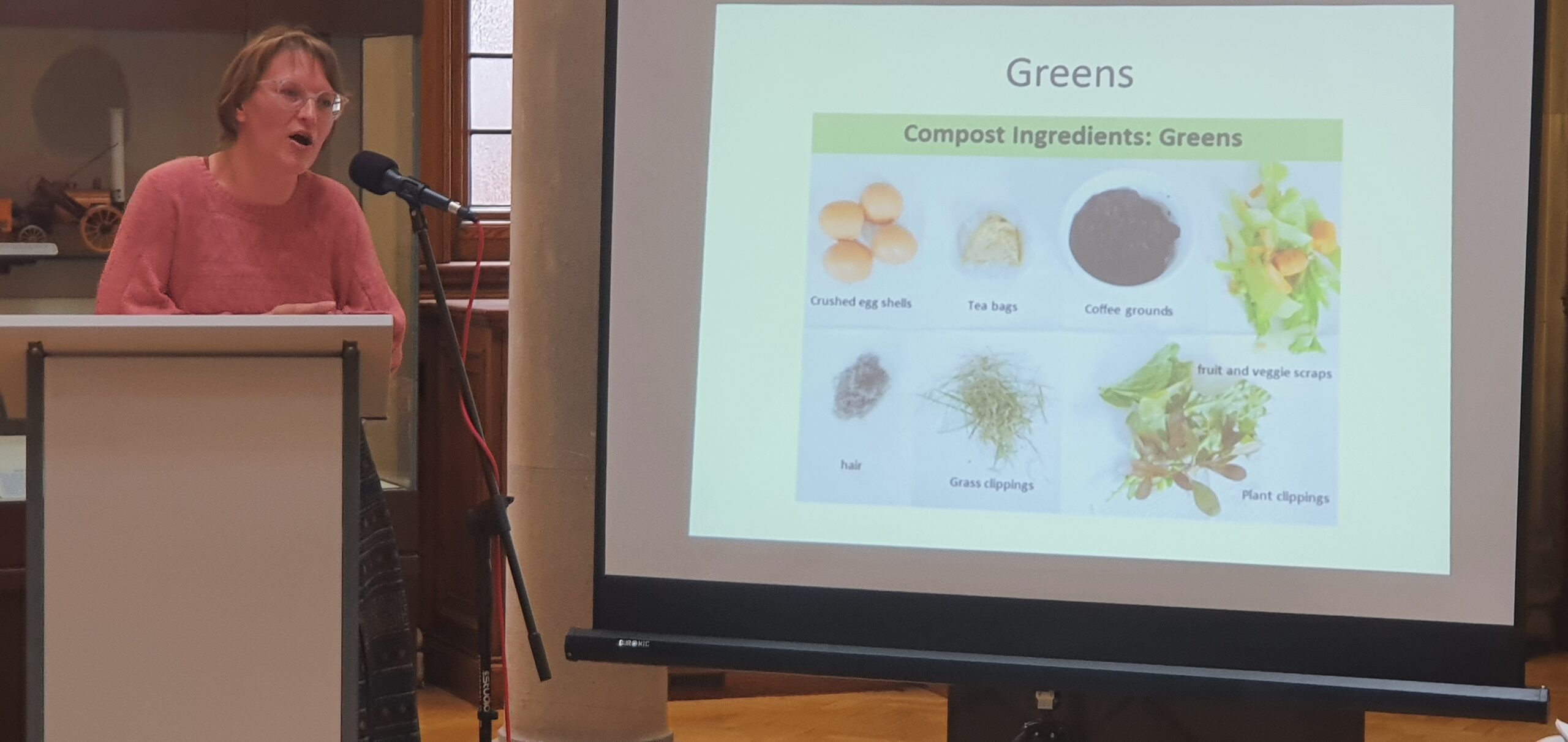
Minna Alanko-Falola
How composting can help us divert food waste from incineration and landfill. compostworks.co.uk
in Liverpool we could grow a lot of the food we need. But we don't, and we have a huge amount of food waste.
— Ignite Liverpool (@Igniteliv) July 2, 2022
A lot of our food waste is still edible, but it ends up being taken by road to incinerators on the other side of the country. Composting is a sustainable way of dealing with food waste.
— Ignite Liverpool (@Igniteliv) July 2, 2022
If you have a garden you can set up your own composting system, even with a small space like a balcony.
— Ignite Liverpool (@Igniteliv) July 2, 2022
There are also community composts that you can contribute to.
— Ignite Liverpool (@Igniteliv) July 2, 2022
composting is like cooking, you need the right ingredients - greens and browns
— Ignite Liverpool (@Igniteliv) July 2, 2022
greens are things veg offcuts and egg shells, browns are things like cardboard and paper. you ideally want a mix of 50/50 green and brown.
— Ignite Liverpool (@Igniteliv) July 2, 2022
We're now onto the Q&A section, if anyone has a question for Lucy or Minna, now's the time to ask.
— Ignite Liverpool (@Igniteliv) July 2, 2022
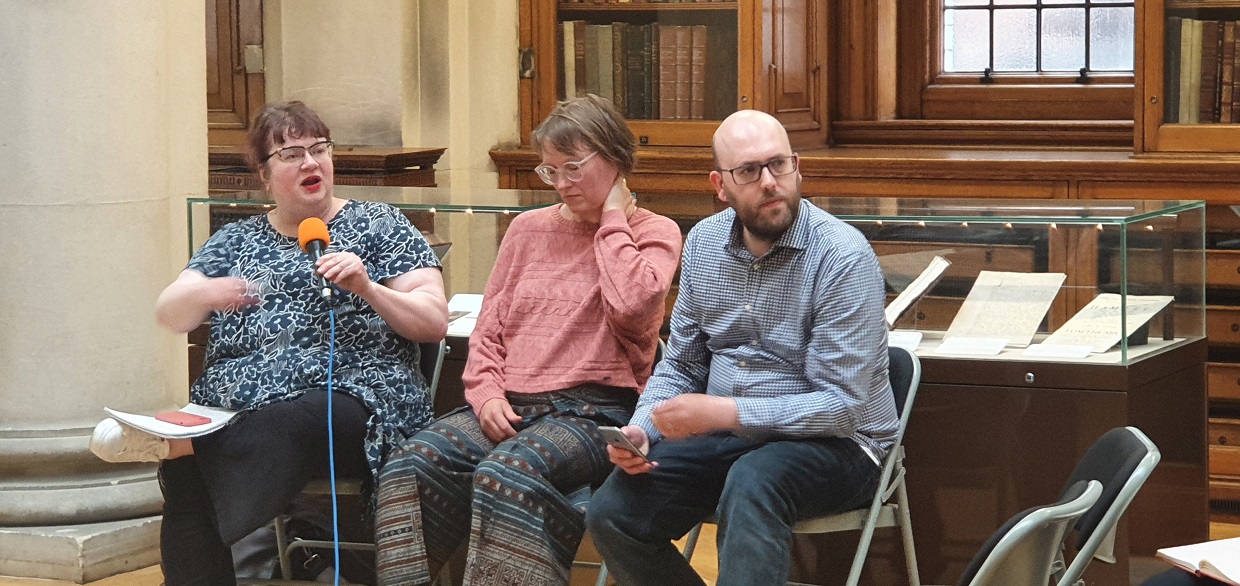
"When planning new housing, councils need to ask where the amenities are going to be? Where are the shops? How can people get to the places they need to?"
— Ignite Liverpool (@Igniteliv) July 2, 2022
First question for Lucy - what should the councils be doing to make sure we can all live in a 15 minute neighbourhood?
— Ignite Liverpool (@Igniteliv) July 2, 2022
Minna says that we need education, and opportunity for people to do things communally.
— Ignite Liverpool (@Igniteliv) July 2, 2022
Q - how can we get people to think more about their food waste?
— Ignite Liverpool (@Igniteliv) July 2, 2022
Minna - the incinerators rely on our food waste to exist, so there is no incentive there to improve things. We need to find ways to help people learn about how to use leftovers, or make use of seasonal food.
Lucy's organisation has a fresh food bus which takes fruit and veg to food deserts - and provides vouchers to families that have been identified as being in real need.
— Ignite Liverpool (@Igniteliv) July 2, 2022
Q from Neil about 15 minute neighbourhoods. How can people who are already on board get their neighbours interested?
— Ignite Liverpool (@Igniteliv) July 2, 2022
Minna - people who we provide communal composting systems too are very keen. They like seeing their food waste put to use locally. They can a tangible outcome to their waste diversion activities.
— Ignite Liverpool (@Igniteliv) July 2, 2022
Lucy - Taking Root in Sefton has been able to get communities growing in back alleys between houses in very small spaces. You can grow veg in old baths that would be otherwise going to landfill.
— Ignite Liverpool (@Igniteliv) July 2, 2022
big old baths are great as planters particularly in areas where the soil isn't great in the first place. And when people see things happening, they are encouraged.
— Ignite Liverpool (@Igniteliv) July 2, 2022
Lucy says that there is a lot of unharvested fruit. Places plant apple trees because the blossom is pretty, without any plan for what to do with the fruit. People are also not familiar with what they can and can't eat which may be growing on their street.
— Ignite Liverpool (@Igniteliv) July 2, 2022
Transport
Transport is the second-largest contributor to carbon emissions in Liverpool. So what does travel look like in 2050? Is it hydrogen and electric, or pedal and public powered?

Ed Gommon
Discusses our Modal shift to active travel
First up will be Ed Gommon - @edthegommon and @zerocarbonlpool with "Modal shift to active travel". #LivMF22
— Ignite Liverpool (@Igniteliv) July 2, 2022
IPCC says we need to get to net zero by 2050 globally, which means 2040 for the UK, and Liverpool council has the goal of getting to Net Zero by 2030, which is ambitions.
— Ignite Liverpool (@Igniteliv) July 2, 2022
1.2% of trips are by bike, 62% by car
— Ignite Liverpool (@Igniteliv) July 2, 2022
the goal is to have more people walking and cycling, but the direction of travel is that we're spending more time in our cars.
— Ignite Liverpool (@Igniteliv) July 2, 2022
Why don't people cycle? only 1/3 of people think it is safe to cycle or for their kids to cycle.
— Ignite Liverpool (@Igniteliv) July 2, 2022
So what can be done? We need leadership and communication.
— Ignite Liverpool (@Igniteliv) July 2, 2022
Low traffic neighbourhoods can create 'mini hollands', we can remove on street parking, to be more like Paris. And we need to get cars out of the city centre.
— Ignite Liverpool (@Igniteliv) July 2, 2022
Bold Street and Castle Street are much nicer places now the cars have been removed.
— Ignite Liverpool (@Igniteliv) July 2, 2022
Next up @TellyElk, talking about active travel again
— Ignite Liverpool (@Igniteliv) July 2, 2022
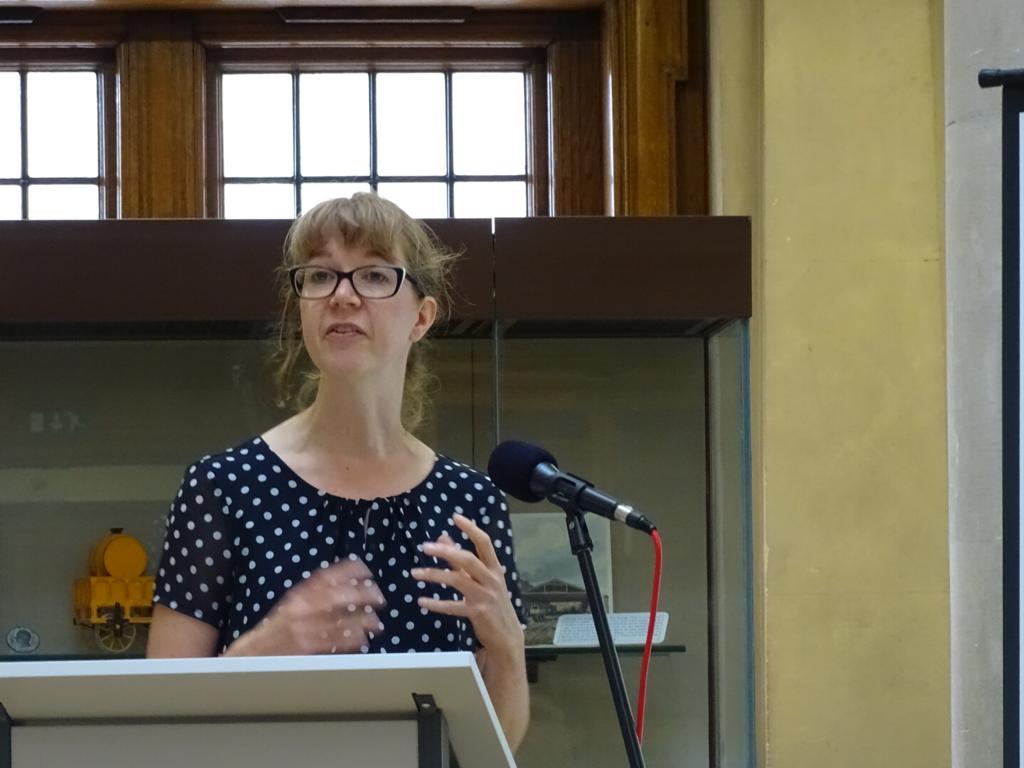
Elke Weissmann
Why Active Travel is the Solution (to More than One Problem) @TellyElk
Audience participation here in the room #LivMF22
— Ignite Liverpool (@Igniteliv) July 2, 2022
When you commute to work by car you are disconnected from other commuters. people who commute by work by bike get to know other cyclists.
— Ignite Liverpool (@Igniteliv) July 2, 2022
Active travel, like walking or cycling helps build a sense of community - person to person interaction becomes possible LivMF22
— Ignite Liverpool (@Igniteliv) July 2, 2022
When we build our street around cars we are building for individuals, which makes it less friendly for other road users, which creates a cycle where more people drive, and fewer cycle or walk.
— Ignite Liverpool (@Igniteliv) July 2, 2022
When you disable community, you disempower people from becoming part of the solution.
— Ignite Liverpool (@Igniteliv) July 2, 2022
next @CycleLiverpool talking about how this isn't The Netherlands
— Ignite Liverpool (@Igniteliv) July 2, 2022
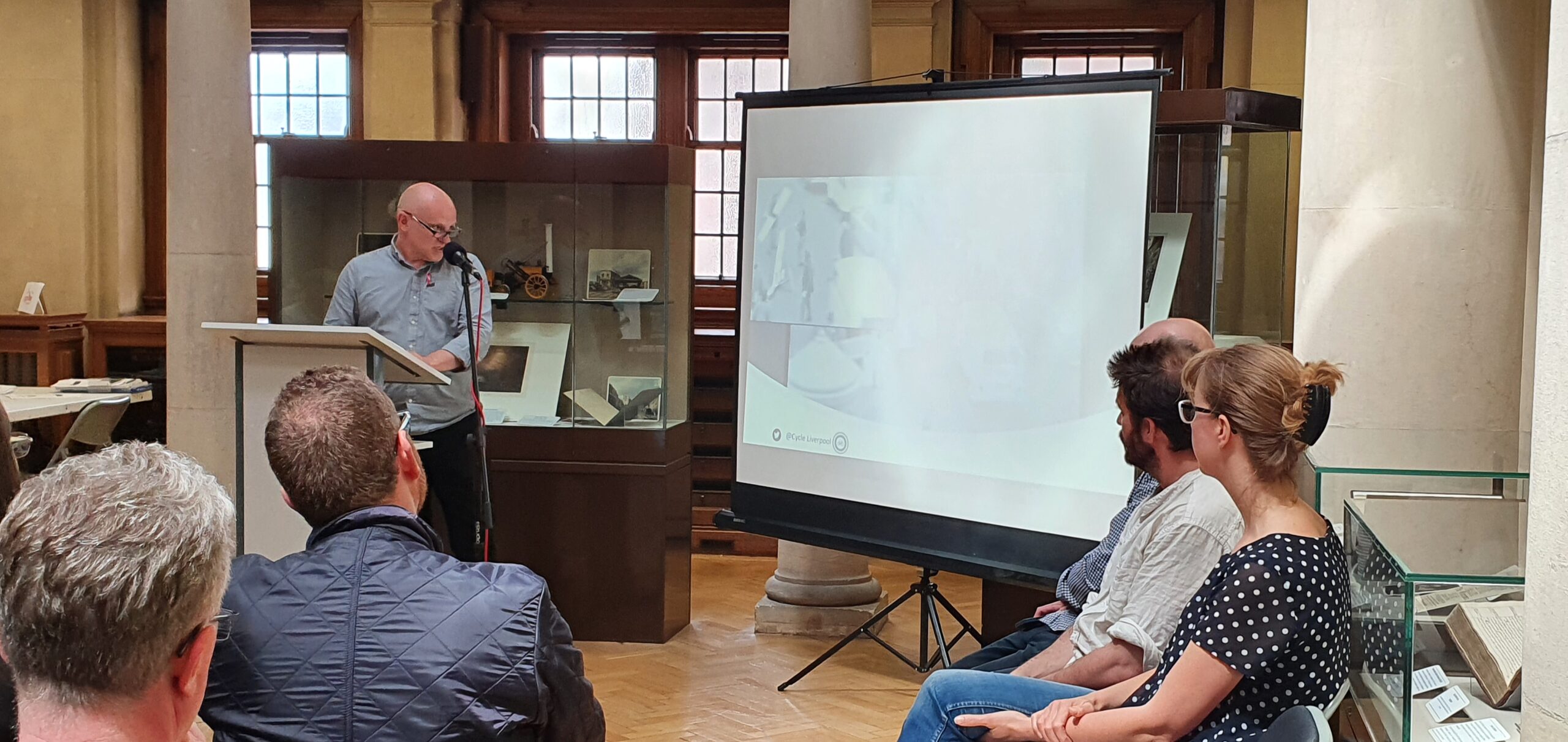
Andi Armitage
This isn’t The Netherlands’ @cycleliverpool
This isn't the Netherlands is the response to why we can't have the same cycling infrastructure as in other places.
— Ignite Liverpool (@Igniteliv) July 2, 2022
But The Netherlands wasn't 'like The Netherlands' until recently. Changes in Amsterdam in the 1970's to get rid of cars were strongly opposed - but they went ahead, and now it seems like the Netherlands have always been like that.
— Ignite Liverpool (@Igniteliv) July 2, 2022
Shared space principles open up streets to all users. 58% of children cycle to school in the netherlands, 2% cycle to school in the UK.
— Ignite Liverpool (@Igniteliv) July 2, 2022
It takes time to implement change - but not forever. Changes can happen in a couple of years.
— Ignite Liverpool (@Igniteliv) July 2, 2022
We need cycling infrastructure that not only exists but that is useable. otherwise people won't use it.
— Ignite Liverpool (@Igniteliv) July 2, 2022
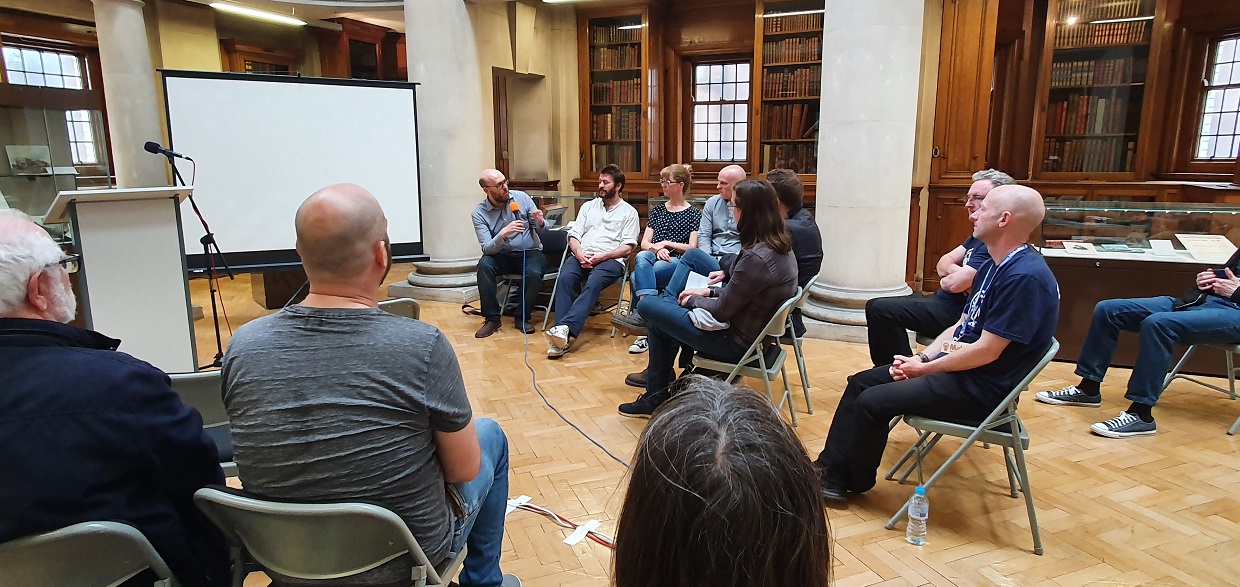
onto the Transport Q&A with a question from @wimpyking - how would our speakers persuade councilors who are a year away from election to do what needs to be done.
— Ignite Liverpool (@Igniteliv) July 2, 2022
Andi @CycleLiverpool says simply, what do they want? do they want to look like Amsterdam in 1970 or 2020?
— Ignite Liverpool (@Igniteliv) July 2, 2022
Cars make a lot of noise, and so do motorists. Some very noisy voices are having a disproportionate effect. @TellyElk suggests that some elected officials could do with growing a backbone.
— Ignite Liverpool (@Igniteliv) July 2, 2022
We have a polarized idea of cycling in the UK that it has to be separated from other traffic, but that's not the case. We can use design interventions to make it easier, and the culture will change over time.
— Ignite Liverpool (@Igniteliv) July 2, 2022
a Q from the audience - what are the speakers thoughts on autonomous self driving vehicles? @CycleLiverpool says he always thinks of Jonnycabs from Total Recall, and is skeptical that we're going to have safe autonomous vehicles anytime soon.
— Ignite Liverpool (@Igniteliv) July 2, 2022
Another Q - what are the systemic things that are in the way? How much is it down to the individual, and how much does the responsibility lie in structures?
— Ignite Liverpool (@Igniteliv) July 2, 2022
Not all interventions have to be expensive though, low traffic neighbourhoods can be relatively cheap.
— Ignite Liverpool (@Igniteliv) July 2, 2022
Friction and incentives can work to create real change. People will do what is convenient and avoid what is inconvenient.
— Ignite Liverpool (@Igniteliv) July 2, 2022
more of a statement than a question at the end from @Defnetmedia talking again about the fact that communities develop around people, not cars.
— Ignite Liverpool (@Igniteliv) July 2, 2022
Our speakers again Ed @edthegommon @zerocarbonlpool, Elke @TellyElk and Andi @CycleLiverpool
— Ignite Liverpool (@Igniteliv) July 2, 2022
Homes and communities
Our homes are the places we’re supposed to feel safe – but many are trapped with high rent, high bills and more – where are the communities in the city bold enough to reimagine the place we call home?
We have 2 speakers coming up: @tyrrell_belinda talking about co-production of clean and inclusive growth. And @TT_Liverpool talking about building community resilience through imagination and collaboration.
— Ignite Liverpool (@Igniteliv) July 2, 2022

Paul Riley
Building community resilience through imagination and collaboration @TT_Liverpool
What is a community, it a group of people linked through commonality. The transition network is a community of groups trying to help people transition away from fossil fuel.
— Ignite Liverpool (@Igniteliv) July 2, 2022
another project, Sparkit Liverpool, asks what is a parking space, what could it be used for other than just storing a car.
— Ignite Liverpool (@Igniteliv) July 2, 2022
Parking spaces could be performance spaces, or pergolas
— Ignite Liverpool (@Igniteliv) July 2, 2022
the third project is the Mersey Green Map which is a directory of local resources which supports the local and alternative economy.
— Ignite Liverpool (@Igniteliv) July 2, 2022
What do we want to see in the future and how will we do it? We want to share our projects, and we want people to share their projects with us.
— Ignite Liverpool (@Igniteliv) July 2, 2022
Our final 5 minute talk now from @tyrrell_belinda talking about co-production. #LivMF22
— Ignite Liverpool (@Igniteliv) July 2, 2022
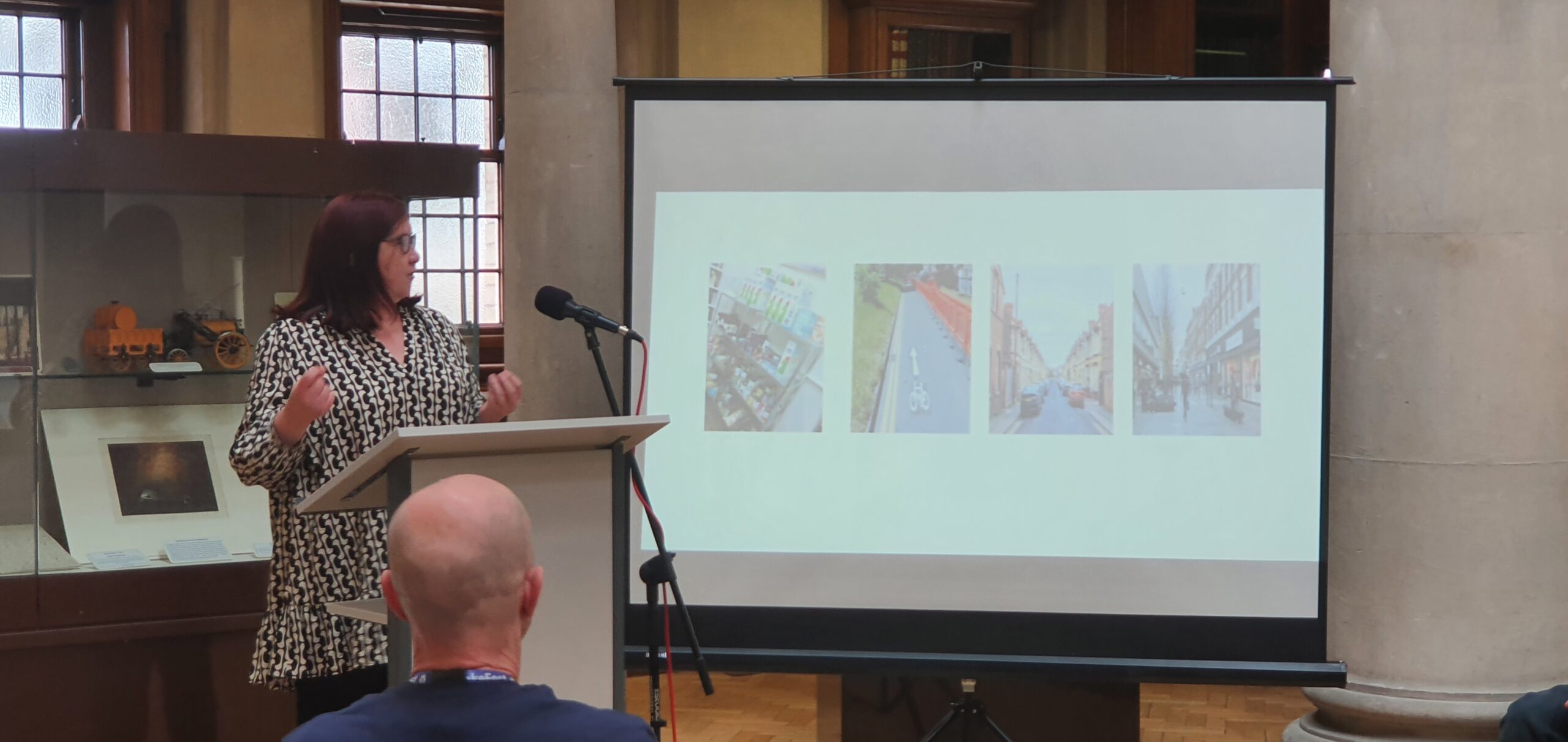
Belinda Tyrell
Co production of clean and inclusive growth: Approaches for Community Participation in Public Policy Development @tyrrell_belinda
What is co-production and how can we all participate?
— Ignite Liverpool (@Igniteliv) July 2, 2022
housing in the 1970s in liverpool was a community, but the quality of the housing was falling apart.
— Ignite Liverpool (@Igniteliv) July 2, 2022
People didn't want to leave their areas, but they needed change. Recently, residents have got together to create their own future, working to decide what they want their communities and housing to look like. #LivMF22
— Ignite Liverpool (@Igniteliv) July 2, 2022
The people who live in an area, and use the spaces, have ideas and insight into how the spaces could and should be used. #LivMF22
— Ignite Liverpool (@Igniteliv) July 2, 2022
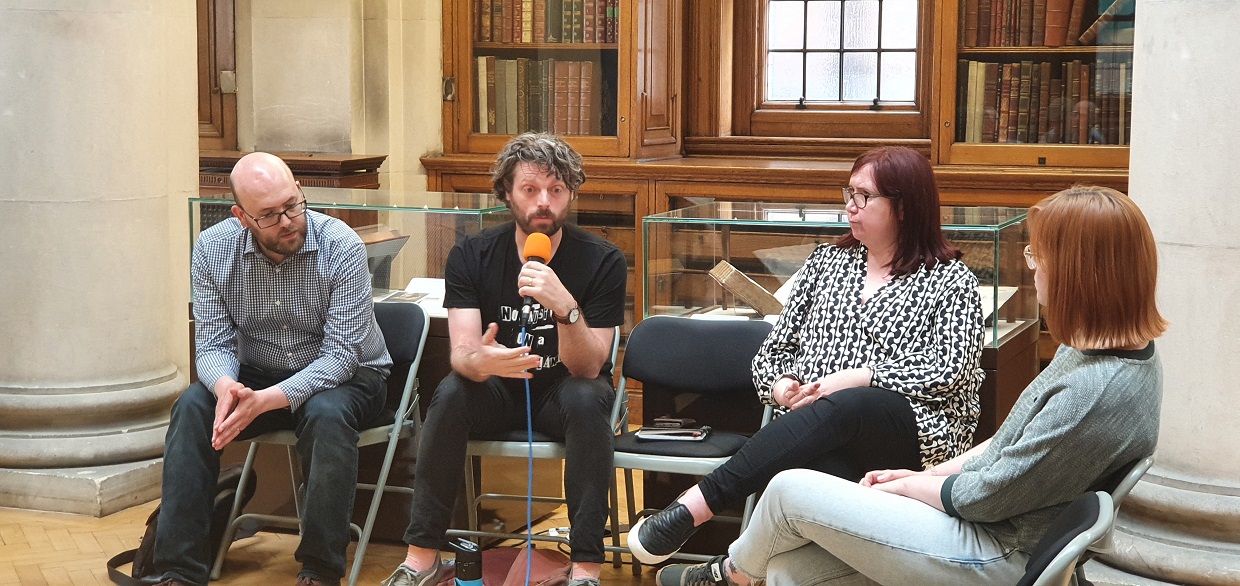
onto our Q&A session, starting with a question from @wimpyking - how do our speakers get people to get involved?
— Ignite Liverpool (@Igniteliv) July 2, 2022
The third sector can take a lot of the weight off of local authorities, if they let them. Councils need a bit of imagination, being a bit more playful, and having a bit more trust in their residents.
— Ignite Liverpool (@Igniteliv) July 2, 2022
Low electoral turnout is an indicator of low engagement.
— Ignite Liverpool (@Igniteliv) July 2, 2022
Giving people more power allows them to invest more of themselves into their communities and local economies.
— Ignite Liverpool (@Igniteliv) July 2, 2022
a question from @Defnetmedia asking @tyrrell_belinda more about the Weller Way. The council wanted to move the community, but the residents didn't want to be split up so they organised and worked together to decide what they wanted, and give a voice to what they wanted to see
— Ignite Liverpool (@Igniteliv) July 2, 2022
The community in the estate is very similar to what it was 40 years ago, with the same families and same neighbours - but better housing, because they kept asking for a say in their own futures.
— Ignite Liverpool (@Igniteliv) July 2, 2022
How can we make our houses and communities a centre of strength. Let's look at what's strong as well as what's wrong.
— Ignite Liverpool (@Igniteliv) July 2, 2022
Q from @TellyElk asking why community approaches like Granby 4 streets and Weller Way work while the liverpool £1 houses haven't been a success.
— Ignite Liverpool (@Igniteliv) July 2, 2022
And that's it for our talks and questions. Our speakers again from this session @tyrrell_belinda and @TT_Liverpool who would be delighted to hear from anyone who wants to get involved with their projects. #LivMF22 #IgniteLiv
— Ignite Liverpool (@Igniteliv) July 2, 2022
That’s the story for now until we have the videos available.
A big thank you to Alistair Houghton, our excellent MC for the day.
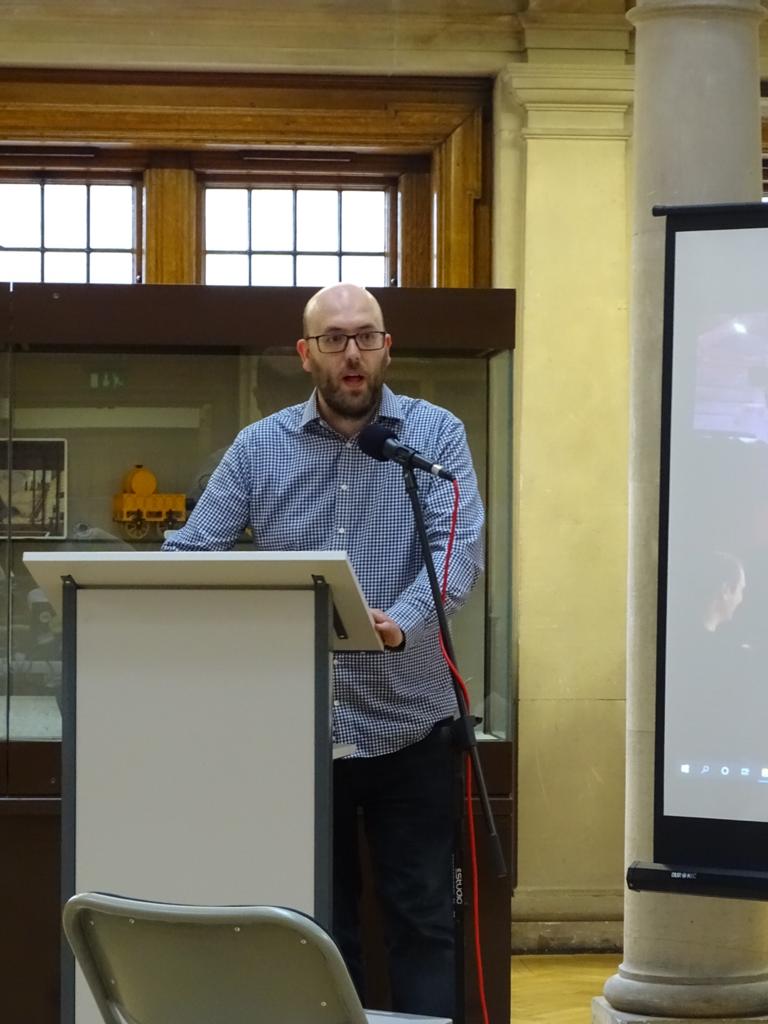
FAQ
The whys and wherefores for Ignite Features…
We’ll be adding more information here for speakers and the audience at this event as time goes by.
Times?
Ignite Features… will take place between 12noon and 4pm on the 2nd July at Liverpool Makefest
Timetable?
As we get closer to the day then we will produce a timetable for the themed sessions.
Each session should take approximately 30 minutes.
Presentations?
These will follow the Ignite format of being 5 minutes long using exactly 20 slides.
Getting cover for your stand?
If you have a stall at Makefest then we will be able to arrange cover for it while you are attending.
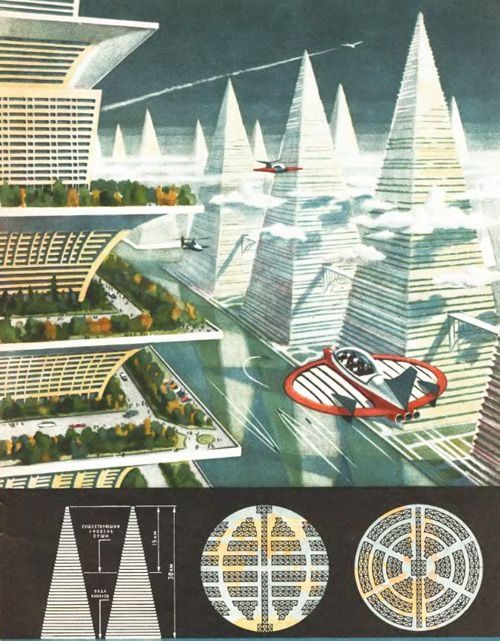
Hashtag: #LivMF22
Facebook: Ignite Liverpool

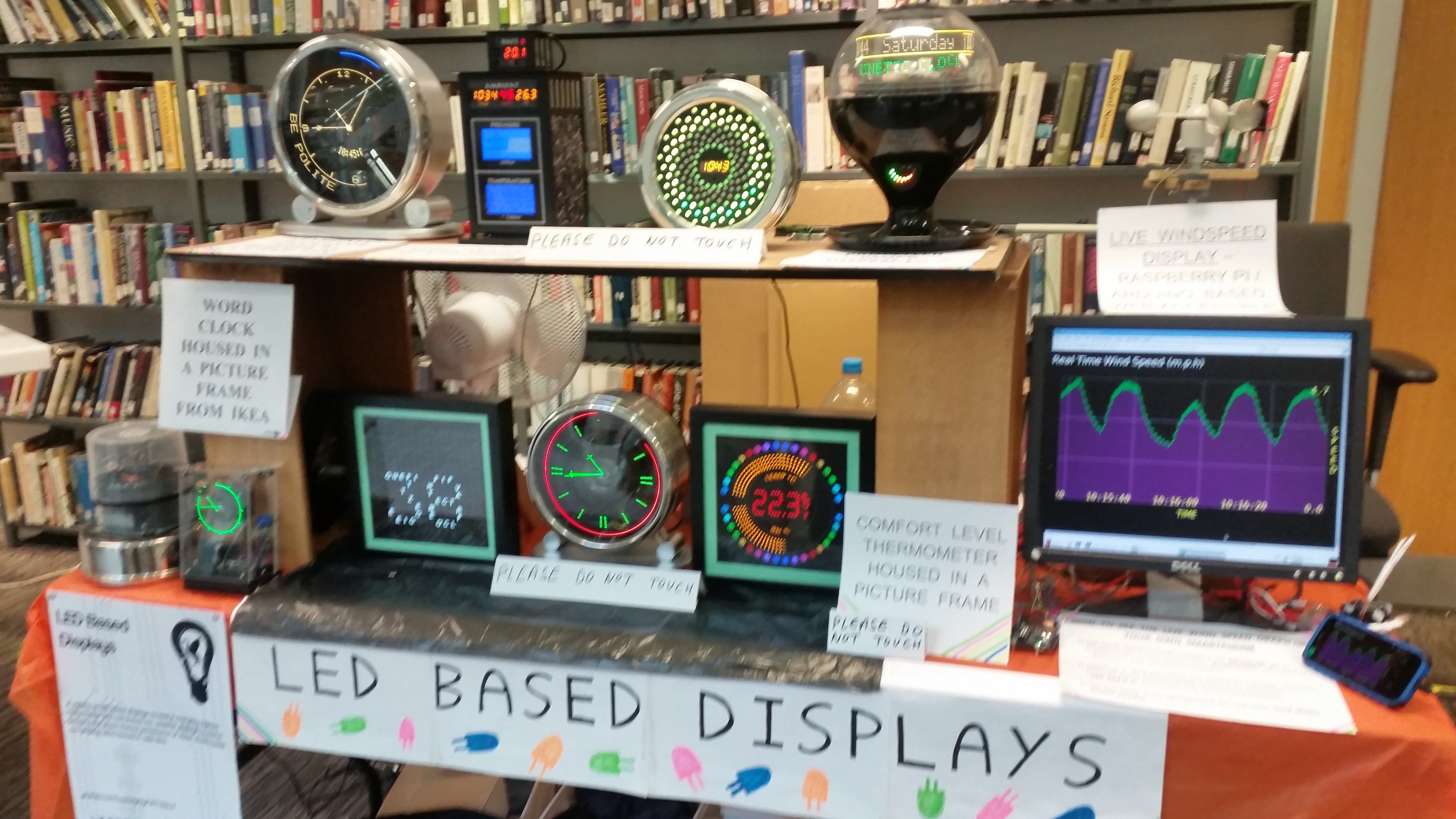
Liverpool Makefest
MAKERS OF ALL TYPES SHOWCASING SCIENCE, TECHNOLOGY, SOUND AND MUSIC, ART, CRAFTS, CREATIONS, INVENTIONS AND GADGETS. HANDS-ON ACTIVITIES, RANGING FROM CODING TO CRAFTS!
